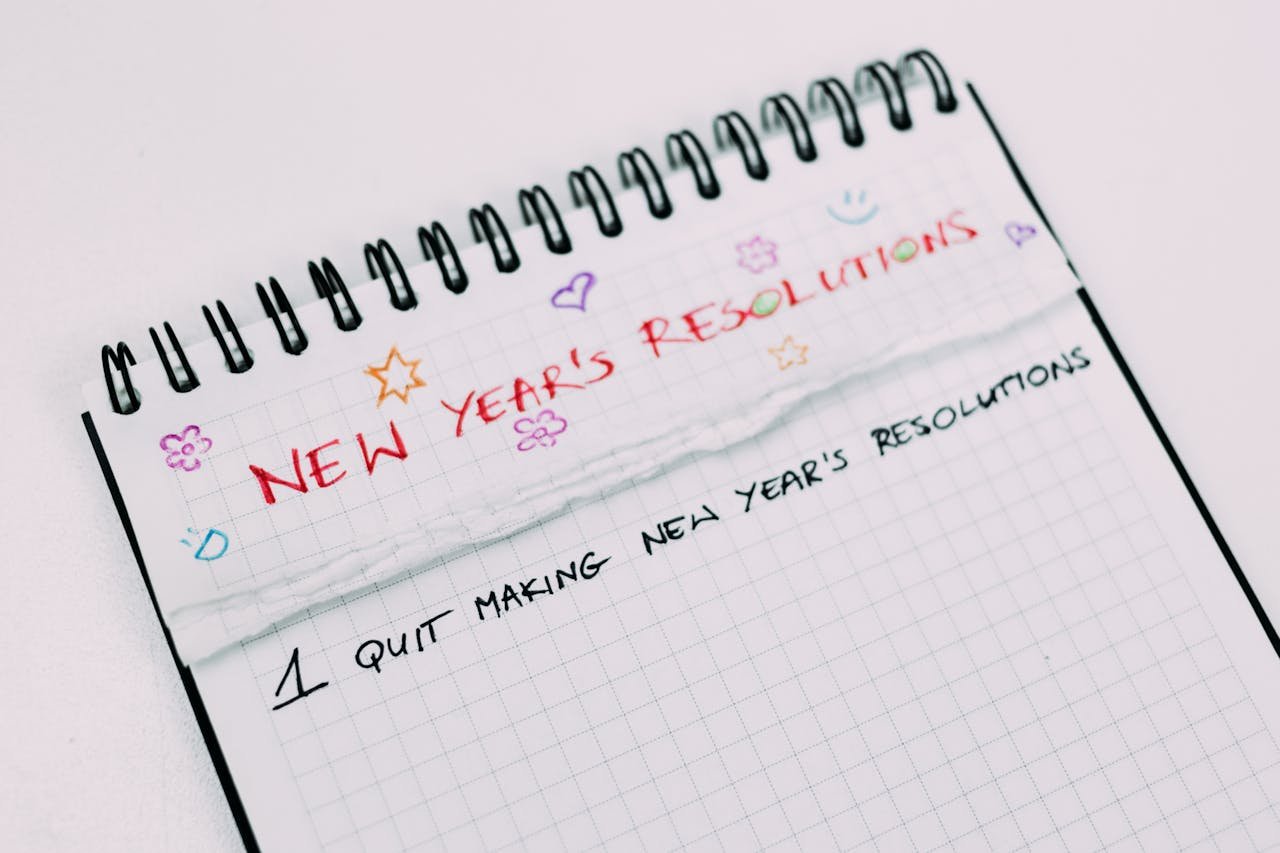The Secret to Resolutions That Truly Stick: Guidance from a Trauma Therapist in Atlanta
January is nearly upon us, and with it comes New Year's Resolutions! Every year many people tell themselves, “This is the year I’ll stick to my resolutions.” And yet, so many of us don’t even make it to February before we completely forget what we had set out to change. The goals we set with so much hope seem to slip through our fingers, leaving us wondering why change feels so hard.
If this sounds like you, you’re not alone. It’s not that you lack willpower or motivation—there’s often more to the story. For many women, hidden patterns from past experiences can quietly influence how we set and pursue goals. These patterns might leave us feeling stuck, second-guessing ourselves, or giving up when progress feels slow.
The truth is, resolutions don’t stick when they’re built on unrealistic expectations or self-criticism. They stick when they’re rooted in self-compassion and set up to help you succeed even while making mistakes along the way. As a trauma therapist in Atlanta, I’ve worked with countless people who felt frustrated with what seemed like an inability to create lasting change. The truth is most of them hadn’t been taught how to set goals in a way that leads to lasting change. In this blog, we’ll explore how to do that.
Why is it so Hard to Keep a Resolution?
Many resolutions fail because they’re unrealistic or lack a sustainable plan. We often set goals that are too ambitious, like overhauling our lifestyle overnight, which can quickly become overwhelming. Without a clear path forward or a manageable plan, it’s easy to lose direction and give up when things don’t go perfectly. These lofty expectations can set us up for disappointment, leaving us feeling frustrated and stuck.
The emotional toll of unmet resolutions can be heavy. When we don’t follow through, feelings of failure and self-criticism kick in, leading to a cycle of guilt and discouragement. But real change isn’t about perfection—it’s about progress. Tracking our goals, no matter how small the steps, helps us see our progress and stay motivated. With a realistic plan and self-compassion, resolutions can become a journey of consistency, not perfection, and every step forward is worth celebrating.
Why Can’t I Stay Consistent With My Goals?
The secret to resolutions that stick lies in setting goals that are realistic and achievable. Instead of aiming for drastic change, focus on small, achievable steps that will gradually move you toward the change you are trying to create. Too much change, all at once, increases stress levels, which leads to anxiety, frustration, and feeling overwhelmed and out of control. Who wants to start off achieving a goal like this?
I like to imagine goal setting as standing at the bottom of a long flight of stairs. The goal I’m trying to achieve is at the top, while I’m at the bottom. Depending on how many steps there are, even if I back up and get a running start, I might never be able to jump from the bottom to the top in one leap. But if I take one step at a time, I will gradually work my way toward the desired goal. Breaking down larger goals into smaller, more manageable tasks makes it easier to reach the top. Setting milestones along the way helps you measure your progress, reflect on how far you’ve come, and combat frustration when you're not where you want to be yet. These milestones keep you moving forward.
How to make resolutions that stick?
As mentioned above, too much change all at once increases stress levels and can lead to anxiety. Small, gradual change is the most effective way. To be able to keep a resolution on track. Here’s how this might work:
Suppose you decide you would like to learn to cook more as your New Year's resolution. A manageable plan would start with identifying things you might be interested in learning how to make—your favorite foods, perhaps? Then, find one or two new recipes to try. Remember, we're taking small steps to ensure lasting change. So, start with one or two recipes instead of a new recipe for every meal in a week. Allow yourself to make each meal twice before you add more new meals. If you added two new meals a week and took two weeks to make those two new meals, you would have learned to cook 52 meals by the end of the year.
What happens if you break your New Year resolution?
Another key element is allowing room for mistakes and setbacks. Life is unpredictable! Sometimes things get in the way. Sometimes we forget. Sometimes we get sick or go on vacation or whatever it may be. It doesn’t mean you have failed, and there is no need to beat yourself up over it. Give yourself permission to treat it as part of the process.
If you find yourself in a spot where you have broken your New Year's resolution, it's okay! Take a deep breath if you need to, reflect on what went wrong if you need to, and start again!
Create a system to track your progress so that when life does happen, you can easily recover. By being kind to yourself and building realistic expectations, you’ll be more likely to create lasting change in a way that feels sustainable and rewarding.
How a Trauma Therapist Can Help
Taking the next step toward setting resolutions that truly stick begins with developing a plan that is realistic with small steps to help you reach your goal. Making sure you have created a plan to track your progress and help you recover when you encounter setbacks will help you in the long run to create the lasting change you are hoping to achieve.
I have helped many clients develop similar plans not just in January but throughout the year. With the right support, you can begin to shift your mindset, create realistic goals, and develop a plan that allows for growth at your own pace. It’s not about perfection—it’s about understanding your unique journey and taking small, intentional steps toward lasting change. If you're ready to start moving toward lasting change, I invite you to schedule a free consultation with me today by clicking here.
Kristy Brewer is a therapist in Atlanta offering online therapy in Georgia helping people find peace amidst the chaos. Her specialties include trauma therapy, attachment therapy for trauma within toxic relationships, anxiety therapy, depression therapy, and parents raising a traumatized child.
Request a free 15-minute phone consultation today by clicking here.


